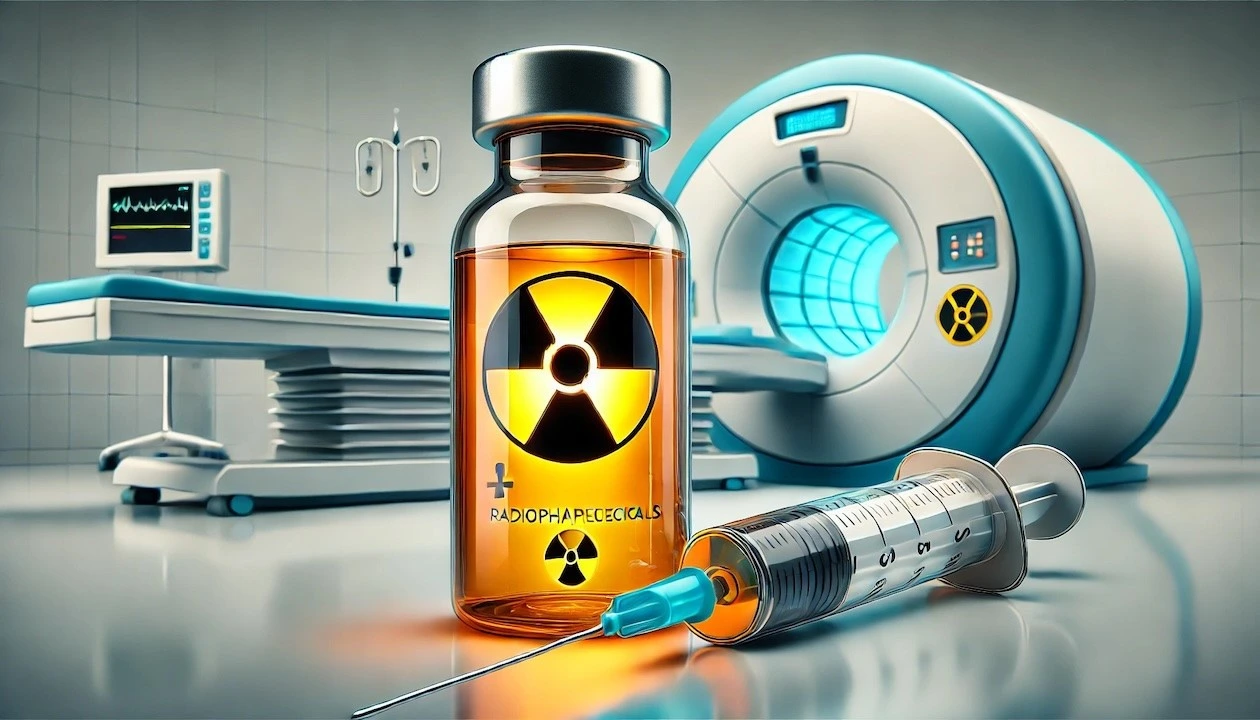
CANADA – Alpha-9 Oncology, a Canadian radiopharmaceutical company, has successfully raised US $175 million in Series C funding to advance its clinical candidates and enhance its research and development (R&D) capabilities.
Alpha-9’s Series C round was co-led by Lightspeed Venture Partners and Ascenta Capital, building on its previous US $75 million Series B and US $8.9 million Series A rounds.
Other notable investors included a16z Bio + Health, RA Capital Management, Janus Henderson Investors, and Samsara BioCapital.
Alpha-9 has established a “robust clinical pipeline” of radiopharmaceuticals, which the company aims to develop through clinical trials for various tumors with high unmet patient needs.
Although specific details of its pipeline are not fully disclosed, the company previously announced the dosing of the first patient in May 2024 for a Phase I study involving its peptide-based radiopharmaceutical, A9-3202.
This candidate targets the melanocortin 1 receptor (MC1R) for imaging in patients with locally advanced or metastatic melanoma.
Expanding Manufacturing Capabilities
The company is also committed to enhancing its manufacturing capabilities. Following the completion of a new manufacturing facility in Vancouver, Canada, Alpha-9 is expanding its partnerships for isotope supply.
This aligns with a broader trend in the industry, as companies like Telix Pharmaceuticals recently invested significantly in manufacturing expansion to bolster their U.S. presence.
In light of the recent funding, Alpha-9’s CEO David Hirsch remarked, “Over the last few years, Alpha-9 has built a leading radiopharmaceutical company with a deep pipeline and robust infrastructure.“
As the company continues to advance its clinical candidates, it joins a growing number of organizations striving to transform cancer treatment through innovative radiopharmaceutical therapies.
In related developments, Sanofi and Orano Med have initiated a joint venture to develop advanced radioligand therapies for rare cancers, further illustrating the increasing collaboration and investment in the field.
Innovative approach to radioligand therapy
Radioligand therapies combine two critical components: a radioisotope, which emits radiation to target specific cells, and a targeting ligand that binds to cells expressing particular targets.
Alpha-9 utilizes a unique array of binders, linkers, chelators, and radioisotopes to create novel radiopharmaceuticals.
“Each component is designed for optimal selectivity, stability, and payload delivery,” the company stated, emphasizing its rigorous and efficient approach to developing leading compounds for clinical applications.
The Series C funding will support human studies for clinical-stage assets and help advance discovery-stage candidates toward clinical readiness.
Additionally, it will bolster Alpha-9’s R&D capabilities and continue investments in its chemistry, manufacturing, and control (CMC) processes and supply chain.
Investment surge in radiopharma
The surge in investments in the radiopharmaceutical sector reflects broader trends in the industry.
Recently, Aktis Oncology also raised US $175 million to further its own radiopharmaceutical developments.
Big pharmaceutical companies, including Bristol Myers Squibb, Novartis, and Eli Lilly, have entered the space, signing acquisition deals worth billions.
Venture financing for innovative radiopharmaceutical drugs has seen a remarkable increase, rising from US $63 million in 2017 to US $408 million in 2023 year-to-date, according to GlobalData’s Pharma Intelligence Center.
XRP HEALTHCARE L.L.C | License Number: 2312867.01 | Dubai | © Copyright 2025 | All Rights Reserved